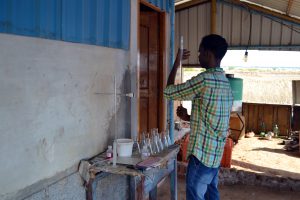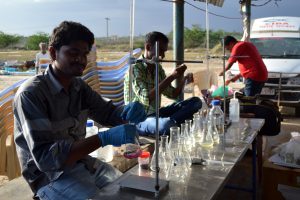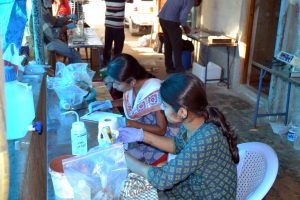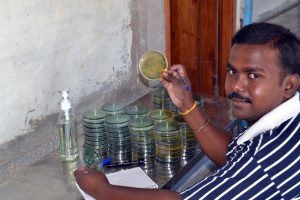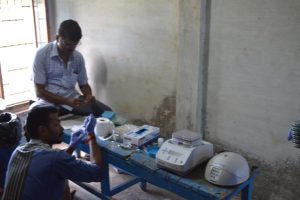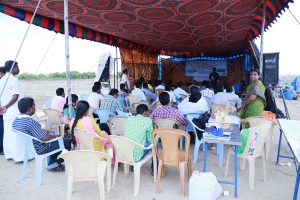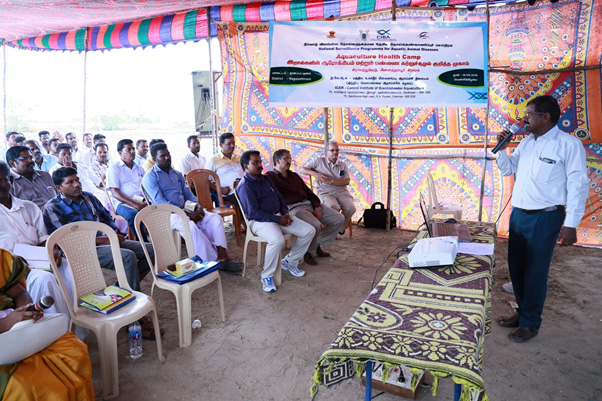ICAR-CIBA organised a first of its kind “On farm Aquaculture Health Camp” at Chinnathumbur village in Nagapattinam district, Tamilnadu on 19th August, 2016 under the aegis of “National Surveillance Programme for Aquatic Animal Diseases (NSPAAD)”. In the interest of shrimp farmers of the region, scientists from ICAR-CIBA provided on-farm testing service for white spot disease (WSD) and Enterocytozoon hepatopenaei (EHP) using PCR-DNA test at free of cost. WSD is a viral disease and causes cent per cent mortality of shrimp stock within 3-4 days of onset of disease, resulting in severe economic loss. The disease has created havoc in the last two decades across the world including India. Recently, EHP, a parasite has been reported from many shrimp farms in India. Though EHP does not cause much mortality, its infection significantly reduces the shrimp growth leading to huge loss to the shrimp farmer. Apart from these devastating diseases, shrimp were also tested for infectious hypodermal and hematopoietic necrosis virus (IHHNV), another important viral infection, responsible for causing runt deformity syndrome in farmed Pacific white shrimp. Laboratory tests and analysis on the pond soil condition and water quality parameters such as redox potential, pH, salinity, alkalinity, hardness etc., including bacterial load, which indicate the health of the aquaculture pond ecosystem, were conducted. In aquaculture, pond environment is of paramount importance in the productivity of aquaculture operation. Aqua farmers were provided a comprehensive report along with valuable advice to effectively manage their shrimp farms.
For creating awareness on disease management, extension handouts prepared in vernacular language were distributed to the shrimp farmers on the management of diseases such as WSD, EHP, acute hepatopancreatic necrosis disease (AHPND) and rational use of aquaculture inputs. For better pond soil and water quality management, handouts were also distributed on soil and water quality management, redox potential and application of minerals in shrimp culture. Scientists from ICAR-CIBA had active interactions with farmers from the region to create awareness and fine-tune their farming.
“Antibiotic residues in farmed shrimp” is an important issue in aquaculture, as importing countries such as US and those in the European Union require compliance with high-quality standards. Noncompliance to standards results in the rejection of exported material from India and is a growing concern for the aquaculture sector in India. Shrimp farmers were sensitized on this issue and stressed on “no use of antibiotic and rational use of aquaculture inputs” in farming operations. CIBA scientists also offered technical support in aquatic animal health and monitoring of the shrimp samples for antibiotic residues. 44 shrimp farmers participated in the aqua health camp and interacted with CIBA scientist on Best management practices in shrimp farming, enriched their knowledge on principles of scientific shrimp farming.
